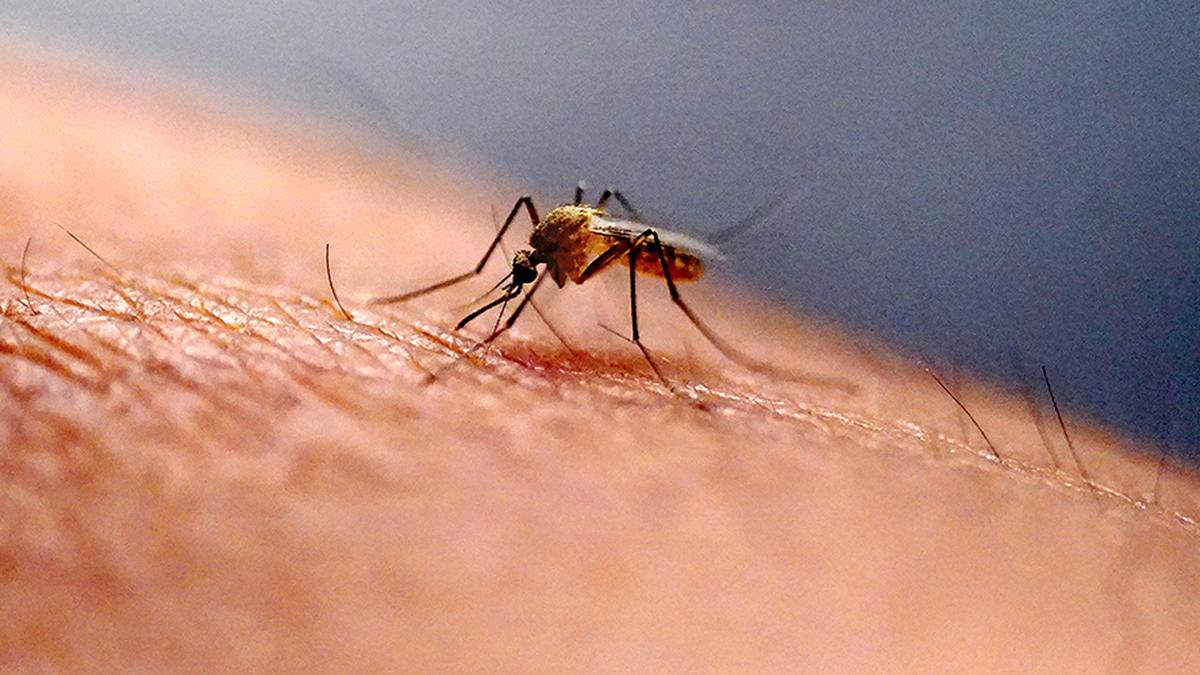
How was the first vaccine for chikungunya approved? | Explained Premium
The Hindu
Valneva's Ixchiq vaccine approved by FDA, providing relief for those at risk of chikungunya. Vaccine contains weakened version of virus and is administered as single dose injection. Safety evaluated in two clinical studies with most reported side effects being headache, fatigue, muscle pain, joint pain, fever, nausea and tenderness at injection site. Vaccine effectiveness based on immune response data from study of 266 participants. Marks of FDA's Center for Biologics Evaluation and Research: "Important advancement in prevention of debilitating disease with limited treatment options." Roll out of vaccine in countries with high prevalence of chikungunya, such as Brazil, Paraguay, India & western Africa, expected to be fast-tracked.
The story so far: On November 9, the world’s first vaccine for chikungunya was approved by the Food and Drug Administration (FDA) in the U.S. The vaccine has been developed by European vaccine manufacturer Valneva and will be available under the brand Ixchiq, and has been approved for administration in people who are 18 years or older, and are at increased risk of exposure to the virus. It was approved using the Accelerated Approval pathway, which allows the FDA to clear certain products for serious or life-threatening conditions based on evidence of a product’s effectiveness that is likely to provide clinical benefit.
Chikungunya, is characterised by severe joint pain and impaired mobility, and comes with fever. It is a viral infection (CHIKV) transmitted primarily by the Aedes aegypti and Aedes albopictus mosquitoes and has been described as “an emerging global health threat.”
The WHO fact sheet says Chikungunya is prevalent in Africa, Asia, and the Americas; but sporadic outbreaks have been reported in other regions. Since 2004, outbreaks of CHIKV have become more frequent and widespread, partly due to viral adaptations allowing the virus to be spread more easily by the Aedes albopictus mosquitoes. The joint pain is often debilitating and varies in duration; it can last for a few days, but also be prolonged over months. Other symptoms include joint swelling, muscle pain, headache, nausea, fatigue and rash. While severe symptoms and deaths from chikungunya are rare and usually related to other coexisting health problems, it is believed that the numbers are generally underestimated, because chikungunya is often misdiagnosed as dengue or zika, as symptoms can seem similar. As of now, there is no cure, only symptomatic relief, with analgesics to help with the pain, antipyretics for the fever, rest, and adequate fluids.
Prevention includes mosquito control activities, primarily falling under public health outreach and routine civic maintenance. Individuals are also advised to use medicated mosquito nets and ensure that there is no water stagnation in any containers at home, in order to prevent the breeding of mosquitoes.
Ixchiq is administered as a single dose by injection into the muscle. It contains a live, weakened version of the chikungunya virus and may cause symptoms in the vaccine recipient similar to those experienced by people who have the disease. Its safety was evaluated in two clinical studies conducted in North America in which about 3,500 participants, 18 years of age and older, received a dose of the vaccine with the other study including about 1,000 participants receiving a placebo. The most reported side effects by vaccine recipients were headache, fatigue, muscle pain, joint pain, fever, nausea and tenderness at the injection site.
The effectiveness of the vaccine was based on immune response data from a clinical study conducted in the U.S. in individuals 18 years of age and older. In this study, the immune response of 266 participants who received the vaccine was compared to the immune response of 96 participants who received the placebo. The level of antibody evaluated in study participants was based on a level shown to be protective in non-human primates that had received blood from people who had been vaccinated.
Peter Marks, director of the FDA’s Center for Biologics Evaluation and Research, added in the statement, “Today’s approval addresses an unmet medical need and is an important advancement in the prevention of a potentially debilitating disease with limited treatment options.” Hopefully, inspired by the fast-track pathway drawn up by research into COVID, this approval will fast track the roll out of vaccines in countries where chikungunya is more prevalent, including Brazil, Paraguay, India (as per the National Centre for Vector Borne Diseases Control, India had 93,455 suspected chikungunya cases until September in 2023), and parts of western Africa.













